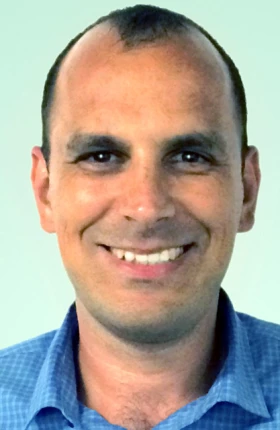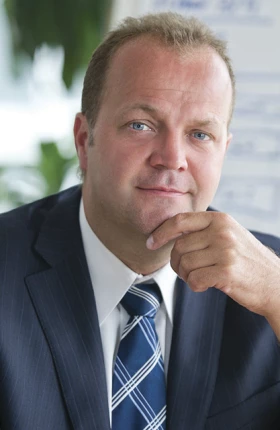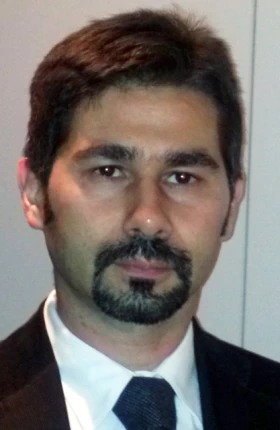“Telcos are seeing a shift from saving to assessing whether investment isn’t actually a better way to go.”
As telco IT units continue their transition from cost reduction to investment, making the right bets, in the right areas, will be essential. For insight on how telcos are focusing their capex budgets and what sort of payoffs they hope to see (or already are seeing), BCG spoke to Helene Graham, chief technology officer at eircom, where the investments are well under way.
From the survey data, we could see that eircom has been making significant investments in IT. What are your key areas of focus?
We have had a large number of projects around our order management and billing systems. We also finalized our online self-service portal and refreshed both our business-intelligence capability and our data warehouse. These investments have very much improved the customer experience. We have also been able to consolidate systems and, for the first time, get a truly 360-degree view of the users and the various services they have from us. So far, these investments have largely been in the consumer and small business space—and, to a lesser extent, in the enterprise and wholesale business.
At eircom, we saw a low degree of outsourcing in IT infrastructure, yet above average outsourcing in other areas. What is the rationale for this?
Traditionally, our infrastructure has included a lot of older mainframes and nonvirtualized applications, and the business case for outsourcing that is rarely positive. It is more cost effective to manage it ourselves than to ask somebody to take it on in its raw state, so to speak. But we are currently in the midst of a virtualization process, and when that is completed, we will review again. In other areas, there is more outsourcing in order to tap into the specific expertise of a third party. For example, we will do the low-level design and then could outsource the development.
Commercial off-the-shelf software is something eircom uses quite intensively in some parts of the value chain. What has been the company’s experience with COTS?
I think every telco is looking for COTS to be the Holy Grail, but our experience has been somewhat mixed. Like most telcos, we try to live by the 80/20 rule: 80 percent out of the box; 20 percent customization. But that’s a ratio that often proves very hard to achieve, especially on customer-facing systems. We have a lot of processes and services that have been in place a very long time and it is hard to change those. So I think the jury is still out on COTS. The big question is how to identify the parts of the value chain where COTS has the best chance of succeeding.
Overall, the TeBIT data showed that IT opex was managed in line with ARPU and revenue declines, while IT capex increased. Have you experienced a shift in focus from savings to investment?
Over the past two to three years, we have been investing a lot more than we have in a long time. We have done so because we have launched new offerings—including a new fiber broadband product, LTE, a new TV product, and various bundles—and you have to invest in IT to support that. I think, in general, telcos are seeing a shift from saving for the sake of saving, to very carefully assessing whether investment isn’t actually a better way to go. But for many telcos, it is not an easy shift to make. Traditionally, there has been a bigger appetite for putting capex into networks than into IT. So it can still be a challenge for the CIO to make the case that investing money in IT should not be seen as a cost but rather as an investment in the building blocks for the future.
We observed that IT capex spending was slightly less focused than we saw last year. Do you see a shift to broader investments?
On balance, I think eircom is still reasonably focused, especially in areas like improving the user experience and understanding our customers better. Of course, there are things that have a more general scope, and we try to invest there, too. But to a certain extent you can accept that the enterprise resource planning system might not be the way you ideally want it, or there might be some back office work that still needs to be done, because you cannot get to everything and you end up balancing investment with opportunity for revenue.
What do you see as the most important technology and investment trends for telcos in the coming years?
I think that the convergence of fixed and mobile networks, and making coverage ubiquitous, will be huge—and challenging—for telcos. What people buy from us are services. They want to do something—watch video, talk to a friend—without worrying about what technology is used. They are going to care more about whether the service is of high quality and easily consumed, and less about whether it is delivered via Wi-Fi or 3G or 4G. The digital side of IT will also be important, but I am no longer sure if, by themselves, social networks or chats will lead to quicker or cheaper resolution of a customer’s problem. I certainly have not yet seen any hard facts that they drive down the cost of serving customers. I think that is going to be the next big question for us, especially as telcos move calls from call centers to chats and social media.
Is digital a new driver for convergence—or is it the other way around?
There is a whole generation today that will probably only ever communicate in digital—reading newspapers online, making calls via Voice over IP, and so on. One could argue that on the mobile side, technologies like LTE and IMS are making this possible; they let us deliver our products in a way that is more in tune with how people like to consume services and content. But which is driving which, I do not know. For an operator like eircom, what is crucial is to develop the right partnerships—opening up our network so that it becomes easier for other companies to offer services that are interesting in a digital format. The things that are close to what we do well we can develop ourselves, but for the broader digital pieces, partnerships will be key.
How do you align with the business to ensure that IT provides high business value?
We have a quite rigorous process whereby the business side tells us their requirements and we essentially test them to see how much it will cost and make assessments on what should be done and not done. It is a very formalized engagement model. Each of our business areas has an engagement partner who serves as a bridge between the business and technology sides. You need a strong partnership to do this stuff right.
How do you ensure innovation and the adoption of promising IT trends?
We spend a lot of time observing what competitors do and interacting with other telcos—such as in industry forums. We learn from them and constantly rethink how we are doing things. This is particularly important for a smaller telco like eircom, which only operates in Ireland, as we do not have the resources for research in all areas.
How would you summarize the challenges for telcos today?
I think the biggest challenge is to get past the mind-set that a product has to be perfect for everyone and every use. A lot of the newer companies we are competing with do not design products that way. For instance, if you move far enough away from a Wi-Fi hotspot, you will drop the connection. Someone with a traditional telco background will say that is unacceptable. But there is a whole generation of users today that does accept it when they use different apps. Thinking about what actually matters to the customer has become much more difficult for telcos. At companies like Google, where the workforce tends to be younger and more digitally savvy, there is often a much stronger link with what people want. Telcos need to narrow the gap. We are getting there, but it is still a challenge for us.





